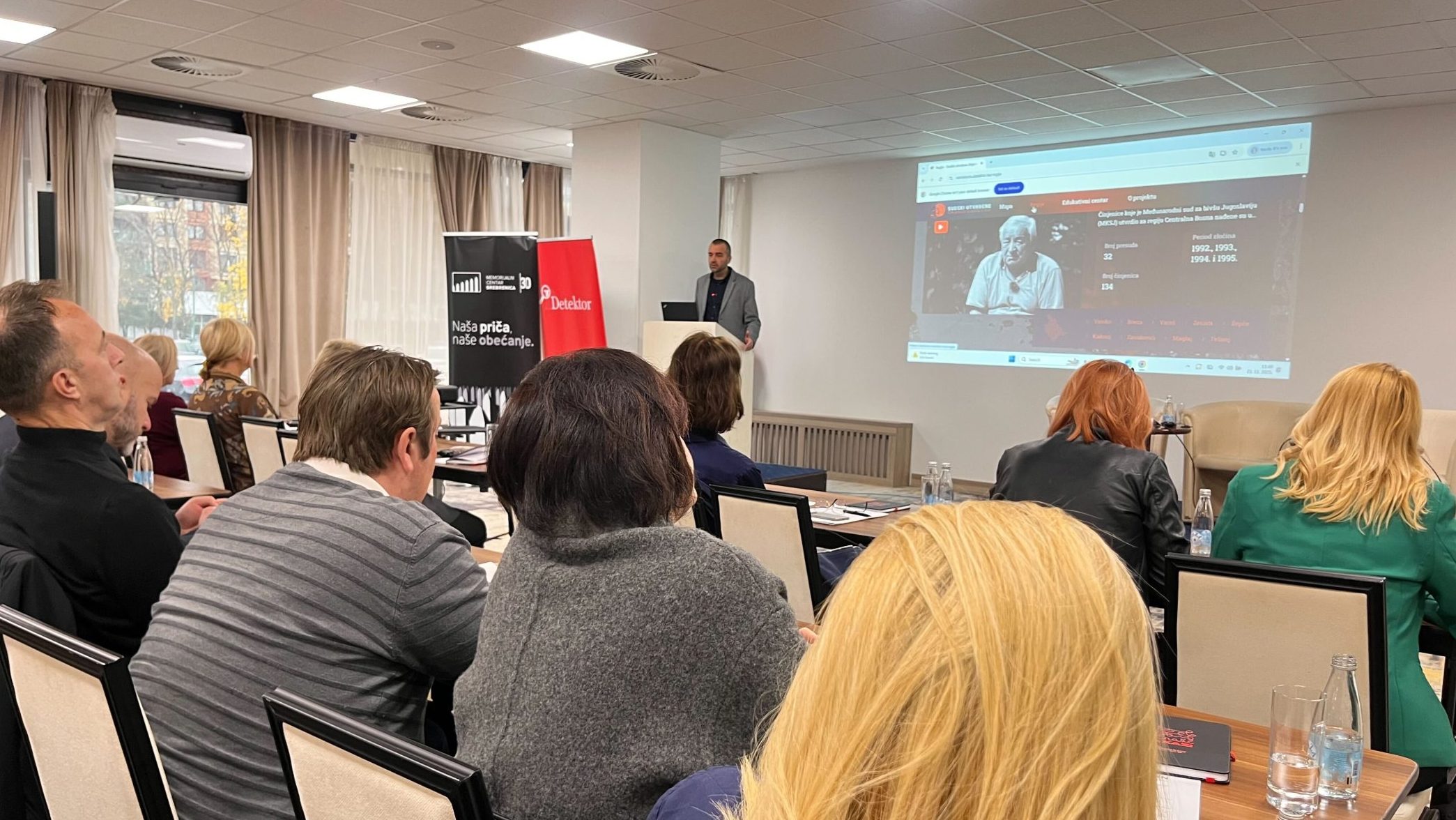This post is also available in: Bosnian
The trial against the Damjanovics was renewed after the verdicts, under which they were sentenced for crimes in the Sarajevo area, were quashed due to the wrong application of the law. The purpose of this hearing was to enable the parties to present evidence referring to the sanction only.
To this end, Senad Kreho, Defence attorney of Goran Damjanovic, presented evidence, indicating that the indictees wife was unemployed and that his son was a secondary school student.
The Court must value the mitigating circumstances too. My client was released home. He lives in a household, whose other members are unemployed. This crime caused no fatal consequences, Kreho said, proposing to the Court to pronounce sentence that would be shorter than the minimal one prescribed under the law.
Neither the Prosecution of Bosnia and Herzegovina nor the Defence of indictee Zoran Damjanovic presented any pieces of evidence related to the criminal and legal sanction.
The Prosecution stuck to its closing statement presented at the end of the first instance trial, which was completed in June 2007, pointing out that it called for a verdict of conviction or imprisonment for indictees Damjanovics.
Fahrija Karkin, Defence attorney of indictee Zoran Damjanovic, called for a verdict of release.
This crime was not proved, beyond reasonable doubt. In case a verdict of conviction is pronounced, I am asking the Court to respect the Constitutional Courts decision from September this year and apply the law, which was in force, when the crime was committed, Karkin said, calling for a minimal sentence in case a verdict of conviction was pronounced.
He said that he would neither present the mitigating nor aggravating circumstances, because his client had been saying that he was innocent the whole time.
The Trial Chamber scheduled the pronouncement of the verdict for Friday, December 13.
In 2007 the Court of Bosnia and Herzegovina pronounced a second instance verdict, sentencing the Damjanovic brothers to 11 and ten-and-a-half years in prison for crimes against the civilian population in the Sarajevo area. The sentence was pronounced according to the Criminal Code of Bosnia and Herzegovina.
The trial was renewed, when the European Court for Human Rights in Strasbourg determined, responding to an appeal filed by Goran Damjanovic, that the Law of the Socialist Federative Republic of Yugoslavia, SFRJ, should have been applied, because it was more favourable for the perpetrator. After that the Constitutional Court of Bosnia and Herzegovina rendered a similar decision pertaining to Zoran Damjanovic.
The law taken over from SFRJ prescribes a minimal sentence of five years for war crimes, while the minimal sentence prescribed for that crime under the Criminal Code of Bosnia and Herzegovina is ten years.
The Court of Bosnia and Herzegovina quashed the verdict against the Damjanovics and released them to liberty after they had served six years of their sentence.
At the end of the previous trial the Damjanovic brothers, former members of the Republika Srpska Army, VRS, were found guilty of having beaten, acting in collaboration with other soldiers, between 20 and 30 captured Bosniaks in Bojnik, near Sarajevo, on June 2, 1992. The verdict said that the beating lasted between one and three hours, and that they beat captives with rifles, sticks, legs and hands.

